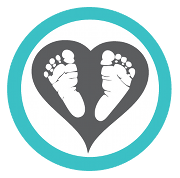There are not a lot of products that have actually been shown to cause birth defects. Since we don't test in the usual way on pregnant women, most medications fall in the category of "not enough information to determine safety." The manufacturer cannot claim safety because FDA guidelines require certain testing to be able to make the claim. That does not mean that a product with a warning not to use in pregnancy unless advised by a doctor is unsafe. So, it's best to check with a teratology agency such as Utah's Pregnancy Risk Line or Otispregnancy.org for information on product safety. If there has been shown to be some problem with the medication, affecting the baby in the form of a birth defect, or affecting the mom (such as raising blood pressure), they will know about it. You can call them at (800) 822-2229 or (801) 328-2229.
There is a new warning from the FDA about a medication sometimes used for migraine headaches, seizures and other disorders. Information is below. Or, click on the post title to be taken to the FDA site directly. Sometimes the need for the medication is greater than the risk to the baby (all babies are not adversely affected) so your doctor will need to make the call here. If you have questions talk to your provider.
The FDA notified health care professionals and patients about the increased risk of neural tube defects and other major birth defects, such as craniofacial defects and cardiovascular malformations, in babies exposed to valproate sodium and related products (valproic acid and divalproex sodium) during pregnancy. Healthcare practitioners should inform women of childbearing potential about these risks, and consider alternative therapies, especially if using valproate to treat migraines or other conditions not usually considered life-threatening.
Women of childbearing potential should only use valproate if it is essential to manage their medical condition. Those who are not actively planning a pregnancy should use effective contraception, as birth defect risks are particularly high during the first trimester, before many women know they are pregnant. A valproate Medication Guide, provided with each outpatient prescription, will explain the benefits and risks of valproate and encourage patients to discuss options with their healthcare professional.
Pregnant women using valproate or other AEDs should be encouraged to enroll in the North American Antiepileptic Drug (NAAED) Pregnancy Registry (1-888-233-2334; www.aedpregnancyregistry.org).






















No comments:
Post a Comment
This blog only reviews comments before posting to avoid hijacking. We will respond to comments Mon-Thurs but we are closed Fri-Sun and legal holidays.